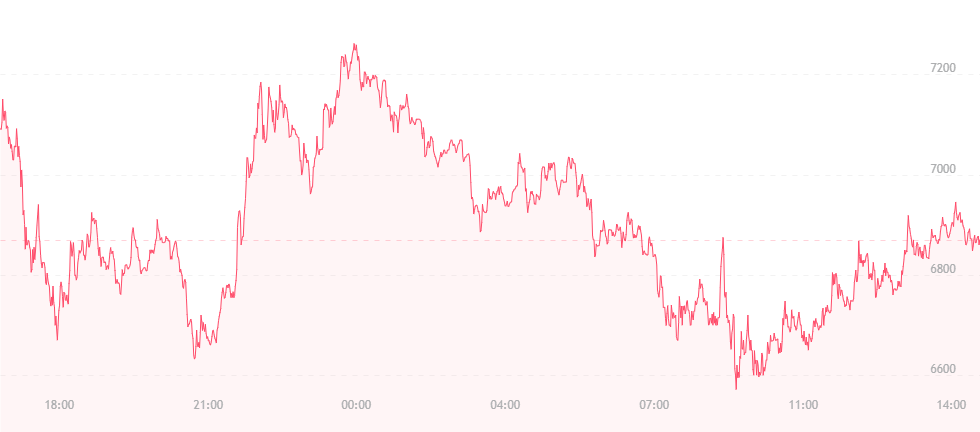Bitcoin’s price is currently hovering at around $6,900. This is a $500 drop from where it stood yesterday, but about $300 stronger than today’s low of $6,600.
At press time, most cryptocurrencies appear to be in the red. Ethereum has grazed a new low, and is presently trading at about $376, while Ripple has lost an additional $0.10 and is trading in the $0.40 range.
The consistent price drops and volatile nature of cryptocurrencies are causing several financial establishments to lose trust in them. Thus, more banks are taking what they consider to be necessary stances against digital assets and working to prevent customers from purchasing or using them.
The latest blockade comes by way of the Bank of Montreal (BMO). As one of Canada’s largest monetary institutions, a memo was leaked by an alleged Reddit user claiming to be a bank employee. The memo explained that all cryptocurrency purchases had been stopped as of March 28, and that users would no longer be allowed to use credit or debit cards – either business or personal – to purchase digital currencies on popular exchanges.
“Effective immediately, BMO will be blocking cryptocurrency merchant transactions. This decision was made due to the volatile nature of cryptocurrencies, and to better protect the security of our clients and the bank.”
BMO now joins a long list of Canada, U.S. and U.K.-based banks – including JPMorgan, Citigroup, Capital One and Halifax – to work against cryptocurrencies.

A big reason for bitcoin’s latest drop may stem from Hong Kong-based exchange OKEX. The popular trading platform enforced a rollback of futures trading following what executives called “irregular sell-offs.” On March 30, staffers posted a note on the company’s support page stating that all weekly, bi-weekly and quarterly futures contracts would be fulfilled, but that all contracts beyond the set closing date would be cancelled out.
This caused a futures liquidation that led to the removal of hundreds of contracts. Ultimately, bitcoin’s price was lowered to nearly $4,700 for a brief period on the exchange, though the currency has managed to sustain at least a marginally healthy level of resistance in the U.S.
Despite the harsh news, some analysts continue to remain optimistic. Head of Mobile at Revolut Edward Cooper, for example, doesn’t feel that the price drop has anything to do with news stories. Instead, he suggests it’s part of a “cooling off” period from all the hype that came about in 2017. He points out that similar occurrences were witnessed in both 2011 and 2013, and yet bitcoin emerged from the ashes stronger than ever and with sturdier footing.
“The price swings in crypto that are caused by news stories are generally much more extreme than we are seeing now,” he recently commented. “ICOs and cryptocurrencies have faced much more serious problems in the past and have emerged stronger. This time is not going to be any different.”
He further explained that events like these are bound to happen again in the future as cryptocurrency technology continues to adapt and “find itself,” and that users are going to have to get used to price swings here and there if their investments are to survive.

